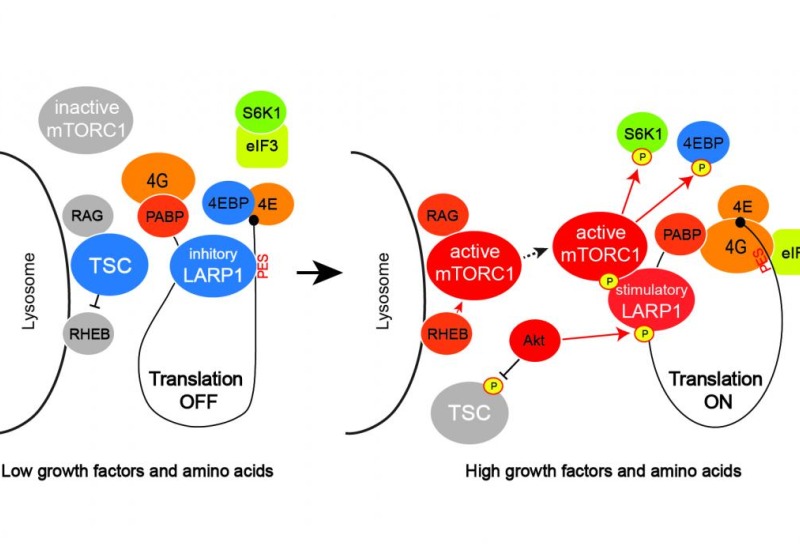In response to growth factors and nutrients, the mechanistic target of rapamycin (mTOR), plays essential roles in stimulating a wide array of anabolic cellular processes, including protein synthesis, lipid biogenesis and nucleotide synthesis, which is crucial for cell growth and proliferation. Critically, dysregulation of the mTOR signaling pathway is known to be involved in the development of various human diseases, such as cancer and metabolic disorders.
Using biochemical and genetic approaches, we investigate the function and regulation of the mTOR signaling pathway and the role of mTOR signaling in human health problems.




